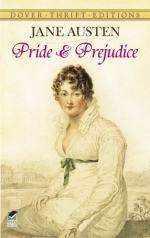|
This section contains 7,765 words (approx. 26 pages at 300 words per page) |

|
SOURCE: Hirsch, Gordon. “Shame, Pride, and Prejudice: Jane Austen's Psychological Sophistication.” Mosaic 25 (winter 1992): 63-78.
In the following essay, Hirsch discusses Pride and Prejudice in the light of modern psychology, focusing on the role of shame in the novel.
Elizabeth Bennet's great moment of psychological insight in Pride and Prejudice comes soon after she reads Darcy's letter:
She grew absolutely ashamed of herself. Of neither Darcy nor Wickham could she think without feeling that she had been blind, partial, prejudiced, absurd.
“How despicably have I acted!” she cried. “I who have prided myself on my discernment. … How humiliating is this discovery!—Yet, how just a humiliation!—Had I been in love, I could not have been more wretchedly blind. But vanity, not love, has been my folly. Pleased with the preference of one [Wickham], and offended by the neglect of the other [Darcy], on the very beginning of our...
|
This section contains 7,765 words (approx. 26 pages at 300 words per page) |

|


